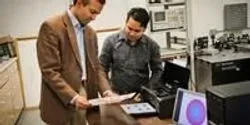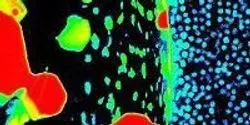News

The Clinical Laboratory Management Association's premier educational event, KnowledgeLab 2014, May 4-7 in Las Vegas, provides a forum for laboratory leaders from all over the world to connect with their peers, grow their knowledge and lead the charge to address key challenges in the laboratory.

William K. Warren Foundation endows Warren Family Research Center for Drug Discovery and Development
The William K. Warren Foundation of Tulsa, Okla., has made a $3.5 million gift to the University of Notre Dame that, combined with a previous gift valued at $6.5 million, will endow the creation of The Warren Family Research Center for Drug Discovery and Development in the College of Science.

A team of University of Notre Dame researchers led by Mayland Chang and Shahriar Mobashery have discovered a new class of antibiotics to fight bacteria such as methicillin-resistant Staphylococcus aureus (MRSA) and other drug-resistant bacteria that threaten public health.

Eight strategies to cut the cost of keeping livestock, while boosting the quality and quantity of food produced.















